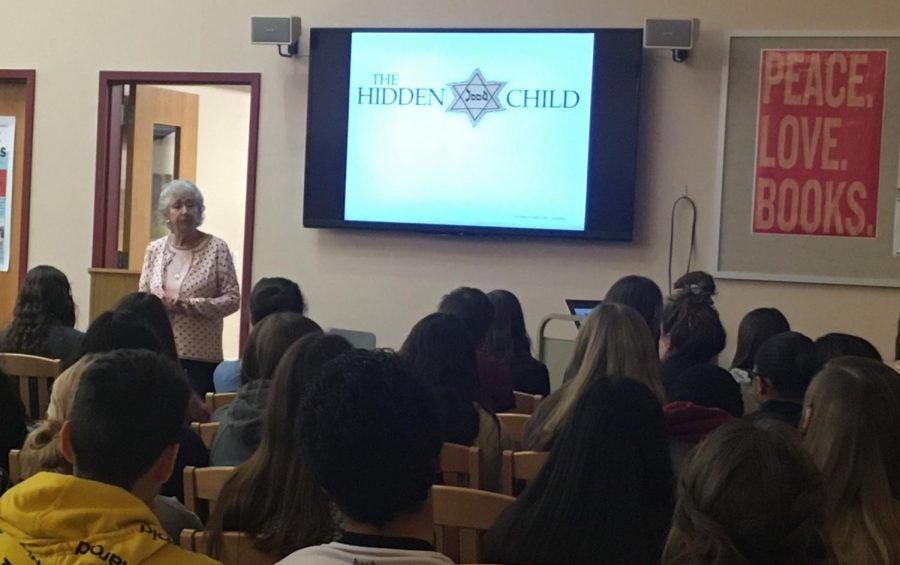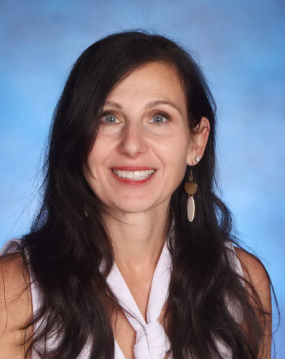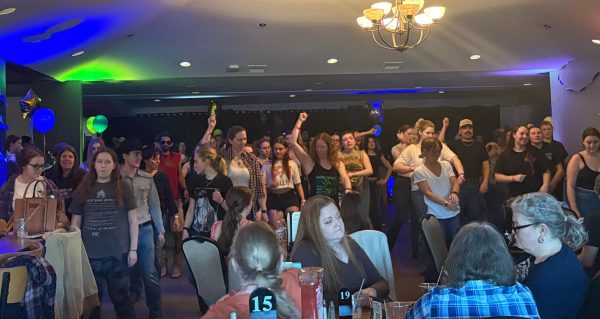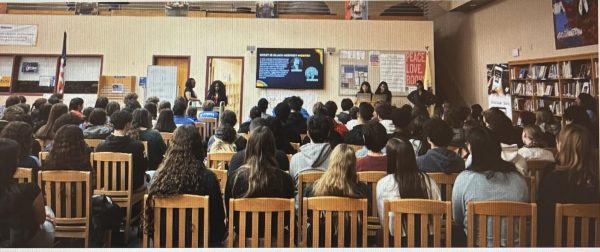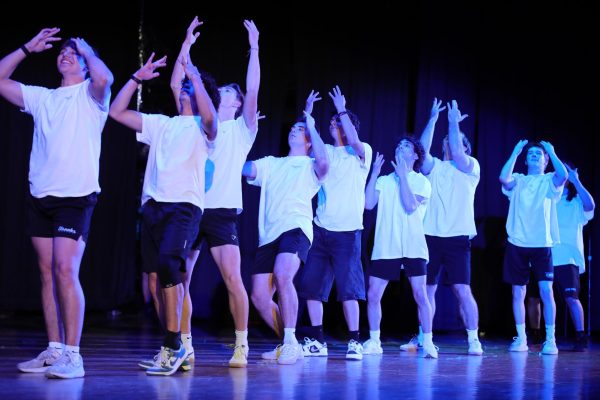Holocaust Survivor Shares Her Story
An octogenarian survivor of the Holocaust came to Warren Hills Nov. 11 to share her touching story about being a child hidden from the Nazis during World War II.
Maud Dahme, who was invited to present a library showcase by Social Studies teacher Debra Rokosny on behalf of the Human Rights Club, talked about how the Nazis came to power in Germany in 1933, starting World War II in 1939.
The Nazi Germans blamed the Jews for the conflicts in Europe and decided to solve the problem by eliminating them. This decision led to the Holocaust, the murder of 11 million “undesired” individuals.
Dahme was born in the Netherlands and grew up in the increasing conflict in Europe. When the war started, everything seemed to be calm, but after a while, the Dutch Jews began to see the effects.
“The war had started and my hometown is a military town, so we were heavily bombed every night,” Dahme said.
When Dahme was 6 years old, the Nazis invaded the Netherlands. Dahme’s parents decided to send her and her sister to a couple at a safe house to protect them from the Nazis.
When Dahme and her sister arrived, their names were changed so that strangers wouldn’t recognize them as Jewish. They also couldn’t go to school, for fear of Dahme saying something that would give her away, or being recognized as Jews by fellow students.
She recalled when the couple started hiding another Jewish boy in their house, but he had to stay under a trap door in the barn so it wouldn’t seem suspicious that there were now three children at the farm. Dahme shared the story of when she was discovered by the Nazis while trying to go down under the trap door to give the boy food.
“Everything was fine until one day, nobody had been around, and I had gone downstairs. I took the pot and was going back up the little steps and I look, and outside there were six German soldiers just standing there. How obvious was this? A little girl coming out of a trap door.
“I went to bed every night thinking that if something happened, it was my fault, but nothing ever happened. Even among all of this, these German soldiers never told anyone about what they had seen. So even with all this evil, there was also some goodness there.”
After a few years at the farm, the residents of the town started hearing stories of liberation.
Dahme emotionally told the students of the day she saw American and Canadian soldiers coming down the street through her town.
“I could look out the window and [the neighbors] had told me where [the soldiers] would be coming in and I watched and watched and then, all of a sudden, I saw a truck of men in blue coveralls coming, and right behind them came the Canadians with their tanks. When I talk about it, I see it and it’s still so emotional, that day. People were just going crazy, climbing all over the tanks. Everybody was just so happy.
“So now we were free.”
Dahme was eventually reunited with her parents, and they moved to America shortly thereafter. She nows spends her time teaching audiences about her experiences during the Holocaust.
“It’s very important to me because genocides continue this very minute. I’m here because people cared and risked their lives to hide and save my sister and I, as they did for many, many other people.
“I think it’s so important because [genocides] are all over religious and ethnic differences. You don’t have to be the best friends, but respect each other, because inside we are all the same.”

